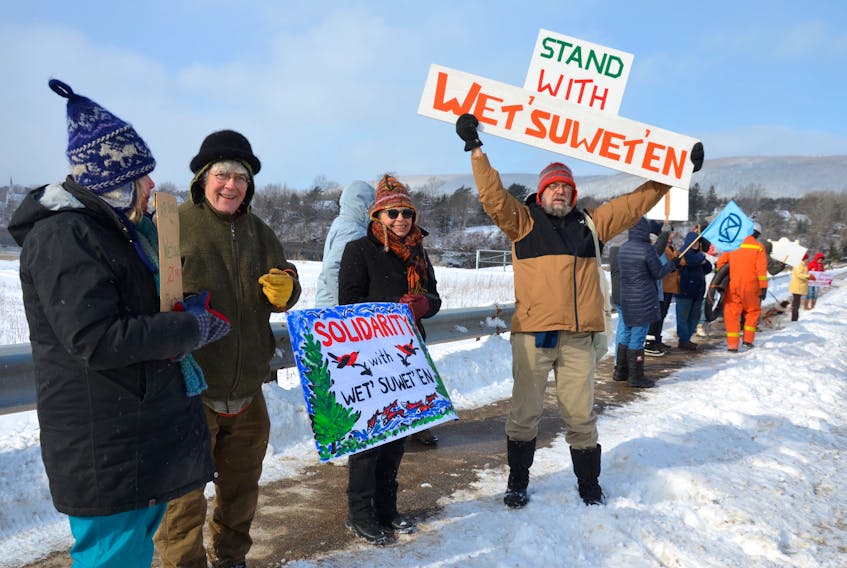“If you want to know who controls you, look at who you are not allowed to criticize.” — Voltaire
I don’t often start a column with a quote. But in these sensitive times, it feels safer to use someone else’s words as a buffer. … Just kidding. I expect to get worked over no matter whose words I use.
I’m a writer. I work with language, and I struggle to make the right choice among the million or so English words (170,000 in common use) that I have to choose from. My editors can tell you that I’m not above sneaking in my own onomatopoeic creations if I can’t find something that suits.

But I spent some time this week not only trying to find the right word to describe something, but the acceptable one as well. And that made me think for a moment about Voltaire, and who you’re not allowed to criticize.
Earlier this week, I was writing an editorial on the current Indigenous blockades over the construction of a natural gas pipeline in northern British Columbia, and I was considering just which word to use to describe protesters on the blockades. I know there’s contention in some quarters about the term “protester,” and the argument has been made that, in this instance, the protesters should be identified as “land defenders.”
Eventually, instead of “protesters,” I settled on “demonstrators.”
Why? And why not “land defenders”? Well, primarily because “demonstrator” was factually accurate, and didn’t involve an implicit value judgment.
Eventually, instead of “protesters,” I settled on “demonstrators.”
You might well be able to argue that “protester” somehow carries a pejorative meaning, even though the protesters in question are well, protesting. Protest suggests opposition, I suppose — demonstrating, meanwhile, does not.
And “land defender”?
It’s a value judgment you can’t make unless you actually examine the direct motives of the people you’re applying it to and establish that the defence of land is the primary goal.
A demonstrator may well be a completely well-intentioned defender of the land — no question.
But use of the term also explicitly instills virtue into the actions involved — and because of that, out of all the words you could use, it’s no more accurate that “protester.”
Think of it this way: in Canadian courts, the accused may well come into court in handcuffs and even leg shackles. But before the jury is brought in, the chains are removed. Likewise, the accused wears their own clothes, rather than prison garb.
Why?
Because the appearance of the chains and clothing are pejorative — they suggest that the accused is guilty, or dangerous, or both. And that’s unfair, because it’s leading the jury in a particular direction.
But at the same time, the accused is identified precisely that way: as someone accused of a crime.
You could argue — and I’m sure there are some who would agree with you — that since people are innocent until proven guilty, you should really describe the accused as “the innocent,” precisely because they have not been proven guilty.
At the same time, though, torqueing language in that way ends up seeming foolish — as the jury returns with a verdict, wouldn’t it be outlandish for the judge to say, “Will the innocent please stand”?
All that being said, the problem is far from limited to one side of the political spectrum. On the other side are those that claim our ability to use language is so horrendously eroded that we no longer have freedom of speech — and that everyone should be able to say what they like, with absolutely no fear of consequences. Good luck. (Voltaire, by the way, would laugh at you for arguing that. He went to jail for the things he said and wrote.)
What’s in a word?
Plenty. But it’s a knife that cuts both ways.
Russell Wangersky’s column appears in SaltWire publications across Atlantic Canada. He can be reached at [email protected] — Twitter: @wangersky








